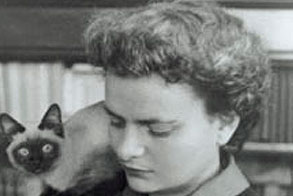Even before his untimely passing in 1987, Primo Levi's contributions to the Italophone literary panorama inspired a significant amount of critical responses. One could argue that his name has become synonymous with contemporary representations of the Italian Jewry, including (but not limited to) artistic reflections of World War II and the Shoah. This volume aims to highlight new or underexplored approaches to the study of the Italkim, but also to properly contextualize and further the extant critical discourse on Italian-speaking, foreign-born authors such as Edith Bruck and Giorgio Pressburger who (among others) have had an undeniable impact on how Italian and European audiences perceive the modern Jewish experience. Contributions will be informed by the most recent scholarship on the subject (Gordon, Salah, Rothberg, Quercioli-Mincer, Serkowska, Speelman, Minuz, Marcus, Sodi, Perra and many others) and will endeavor to move beyond the barriers that all too often have helped create a compartmentalized scholarly inquiry with respect to Jewish artists operating in Italy. Essays exploring the literary and cinematic representations of the Italophone Jewish experience will constitute the principal focus of this issue. Submissions addressing unstudied/understudied artists and themes are especially welcome. Manuscripts must be submitted electronically no later than March 1, 2014.
Possible topics include, but are not limited to:
- Male and Female Jewish Identities, Migration, Transationalism and Translingualism, the Shoah, World War II and Fascism, Cinema, Theater.
Submissions can be authored in English or Italian. Authors must comply with MLA standards for citation and documentation of sources.
Articles may not exceed 10,000 words. Book reviews should not exceed 1,200 words.
Editorial communications should be addressed to the editors, preferably via e-mail, or mailed to Simona Wright, Dept. of Modern Languages, The College of New Jersey, 2000 Pennington Road, NJ 08628-0718. Manuscripts should be sent via e-mail attachment (Microsoft Word for PC). Attachments should be marked with the last name of the contributor, followed by the name/subject of the paper (Dunne/Boccaccio - Dunne/Postmodern). All submissions must be accompanied by a cover letter/message that includes the author's relevant affiliations, a U.S. or international postal address, and an e-mail address. Contributors need to submit, in order, their name and work affiliation at the end of the article. NeMLA Italian Studies has a blind reader policy and the editorial staff will erase the personal information from the copy sent for evaluation to each of the readers.
NeMLA membership is not required to submit to NIS; however, membership is required for publication.
Please consult this webpage for details.
Interested authors should contact the editors by e-mail:
Philip Balma
University of Connecticut
philip.balma@uconn.edu
Simona Wright
The College of New Jersey
simona@tcnj.edu


